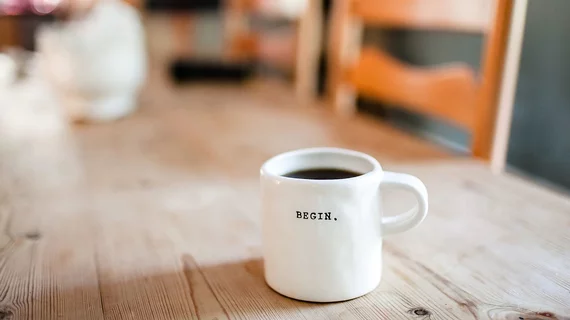AI can design your daily ‘caffeine strategy’ with military precision
A year ago, U.S. military researchers presented an algorithm that can tell an individual how much caffeine to consume, and when, to achieve optimal alertness. Now they’ve turned the technique into a freely available tool for “designing effective strategies to maximize alertness while avoiding excessive caffeine consumption.”
That’s from the team’s study abstract, published recently in Sleep. Principal investigator Jaques Reifman, PhD, is scheduled to present the details June 12 at the annual meeting of the Associated Professional Sleep Societies in San Antonio.
The updated version of the tool, dubbed 2B-Alert, allows the user to program not only the time of day at which he or she wishes to be maximally alert but also a minimal level of desired alertness and a maximum daily caffeine limit.
From these inputs the tool computes doses and timing, displaying predictions of how well the user would perform in an established test of psychomotor vigilance. Both the consumption guidance and the performance predictions can be exported to a spreadsheet.
To test their 2.0 tool, the authors compared its recommendations with those of published Army guidelines when both were applied to various scenarios involving sleep deprivation and shift work.
They found the tool produced daily prescriptions that cut caffeine consumption 40% or boosted alertness scores 40%.
In a press release sent by the American Academy of Sleep Medicine, Reifman, who works at the U.S. Army Medical Research and Development Command in Fort Detrick, Maryland, says the open-access tool will have practical applications beyond military and research settings.
For example, he offers, “if you pull an all-nighter, need to be at peak alertness between, say, 9 a.m. and 5 p.m., and desire to consume as little caffeine as possible, when and how much caffeine should you consume? This is the type of question 2B-Alert was designed to answer.”

